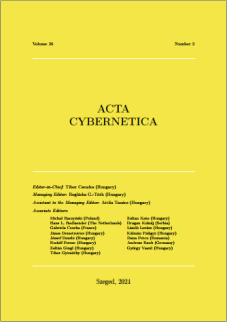Ontology Supported Domain Knowledge Module for E-Tutoring System
DOI:
https://doi.org/10.14232/actacyb.297804Keywords:
E-tutoring system, domain knowledge module, ontology, SPARQLAbstract
E-tutoring Systems are computer applications that provide direct customized education to learners. The E-tutoring system usually includes four modules: Teaching Module, Knowledge Module, Learner Module, and Learner Interface. This investigation focuses on Knowledge Module, considering design and implementation for a selected domain. One of the useful mechanisms of Artificial Intelligence (AI) that is commonly used to formalize domain knowledge module concepts and their relation in an E-tutoring systems is ontology. The term ontology is described as a representation of the entities in a domain and the way those entities connect to each other. This paper introduces a domain knowledge module for an E-tutoring system that allows knowledge stored in a well-defined form to support reusability, shareability, flexibility, and standardability and to assist the storage of transfer and prerequisite knowledge relationships. The introduced knowledge domain module is designed in two ways the general concepts domain knowledge module and a specific domain knowledge module ontology. This innovative technique is helpful for students in enhancing their learning progress. Combining the proposed ontology domain knowledge module with an E-tutoring system can enhance the quality of intelligent problem-solving. Also, it will be possible to reuse the knowledge domains. As a result, the proposal of the domain knowledge module for the E-tutoring system can enhance the teaching and learning process, support recommendations, and generate hints. In the future, the suggested module can be improved by adding some functionalities and automatically supporting the generation of problems and their solutions.







